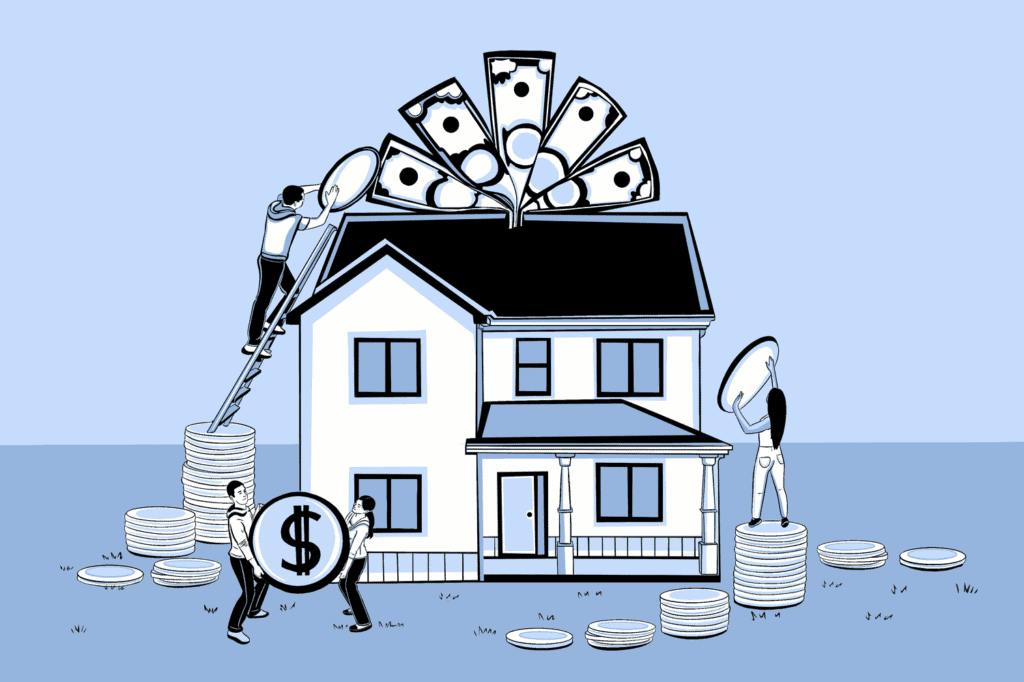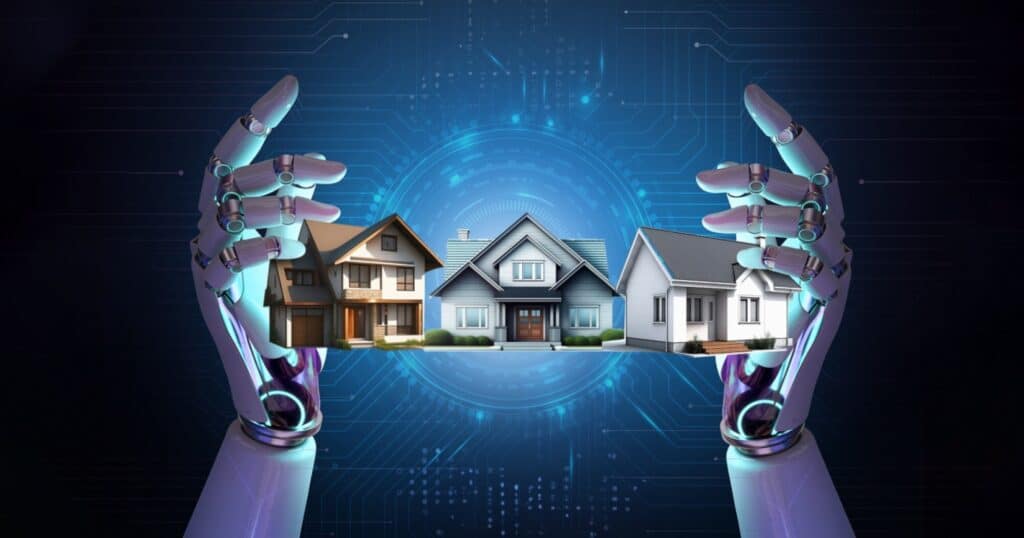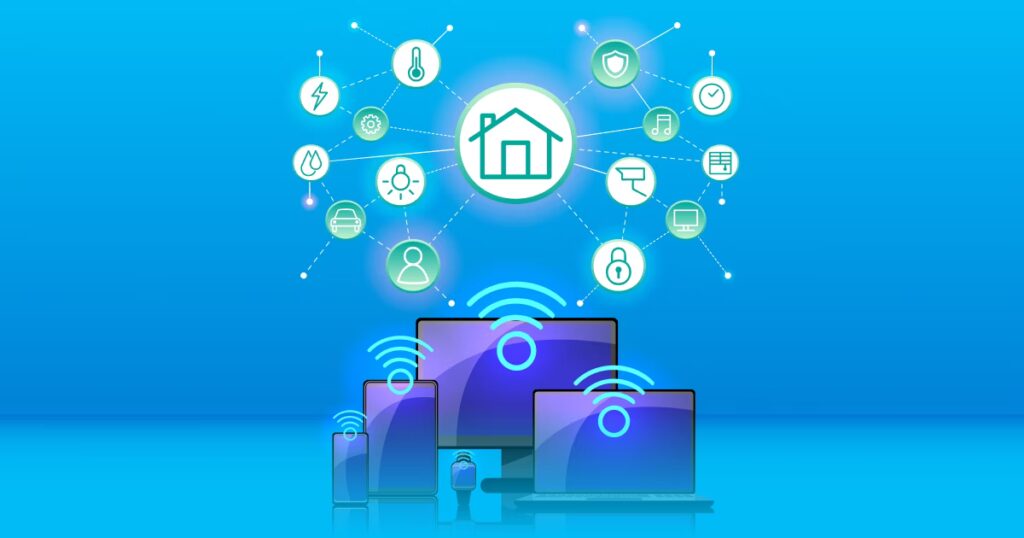In the rapidly evolving real estate industry, smart home features have become a key selling point for modern homebuyers. As more homes integrate technologies like smart thermostats, security systems, and energy-efficient appliances, it has become crucial for real estate professionals to accurately list these features in Multiple Listing Service (MLS) fields. Doing so not only enhances property visibility but also ensures the right buyers find their ideal homes.
Overview
This article delves into the significance of listing smart home features in MLS fields. It explores the broader real estate ecosystem and how smart technology intersects with MLS platforms, data analytics, AI, and user experience. We’ll also examine industry training, certifications, platform optimization, and advanced technological integrations, all contributing to a seamless experience for buyers, sellers, and agents alike.
Real Estate Development World
Real estate development now increasingly incorporates smart technology from the ground up. Builders and developers are integrating IoT devices, home automation systems, and energy management tools into their projects. Listing these advancements properly in MLS helps showcase the full value of a property.
Private Real Estate Networks
Private real estate networks offer an alternative to traditional MLS platforms. While they cater to exclusive listings and niche markets, they must also adopt smart home feature fields to remain competitive. Integration ensures seamless information exchange and better marketability.
Remote Real Estate Work
The pandemic accelerated the shift to remote work, including in real estate. MLS platforms have evolved to support virtual tours, digital document management, and smart home feature listings, enabling agents to serve clients from anywhere.
The MLS Concept
Multiple Listing Services are centralized databases where brokers share property listings. Including smart home features in these listings improves transparency, aids searchability, and enhances the buyer experience by highlighting tech-savvy homes.
Needed Training Courses
Real estate professionals must undergo training in MLS data entry, smart home technologies, and tech-enabled property management. Courses in digital tools, CRM systems, and home automation basics can significantly improve listing accuracy and marketing effectiveness.
Needed Certifications
Certifications like the Certified Residential Specialist (CRS), Smart Home Certification from NAR, or Green Designation help agents understand and market smart home features. These credentials also increase credibility with tech-savvy clients.
Onboarding Programs for New Agents
New agent onboarding should include comprehensive MLS training with a focus on listing smart home features. This foundation ensures agents can accurately and confidently enter relevant data.
MLS Agent Onboarding Processes
Effective onboarding processes include tutorials, mentorship, and real-world listing practice. Emphasizing smart home features early equips agents with the knowledge to meet modern buyers’ expectations.
MLS Platforms
Modern MLS platforms like Zillow, Realtor.com, and Redfin offer fields for smart home features. These systems must stay updated with emerging technologies to provide comprehensive listing capabilities.
Optimizing MLS
Optimization involves ensuring MLS systems are intuitive, efficient, and comprehensive. Smart home features should be easily searchable and categorized logically to assist both agents and buyers.
Artificial Intelligence
AI transforms MLS by offering predictive search, automated property suggestions, and intelligent listing enhancements. AI can identify patterns in buyer behavior, improving how smart homes are marketed.
AI Matching Buyers with Ideal Neighborhoods
Advanced AI tools match buyers to neighborhoods based on preferences, lifestyle, and budget. Including smart home features in MLS helps refine these matches and boost satisfaction.
Analytics – Economic Impact
Analytics provide insights into how smart features influence property value, time on market, and buyer interest. Economic impact studies show smart homes often sell faster and at higher prices.
Data Quality Management
Accurate, complete, and timely data entry in MLS is essential. Poor data quality leads to missed opportunities. Real estate agencies must implement data validation and training protocols.
Intelligent Listing Alerts Based on Market Movement
Smart MLS systems now offer alerts triggered by market trends. Buyers can be notified when properties with specific smart features are listed, improving engagement and conversion.
Data Security Standards
As MLS platforms collect more detailed home data, cybersecurity becomes paramount. Adhering to data protection standards like GDPR and implementing encryption protocols ensures trust.
Personalization Features
Personalized experiences driven by user data help MLS platforms serve relevant listings. Buyers can prioritize homes with smart features, energy ratings, or automation systems.
User Experience Design
User-friendly design is critical. MLS interfaces must be clean, responsive, and functional, allowing users to filter properties based on smart features easily.
Usability Testing
Regular testing ensures MLS platforms work seamlessly across devices and user types. Including diverse testers helps address real-world usability challenges and optimize smart feature searchability.
Fix And Flip
Smart technology adds value to fix-and-flip projects. Listing these upgrades in MLS helps flippers attract buyers looking for modern, tech-enabled homes.
Property Valuation Tools
Tools that consider smart features in valuation algorithms offer more accurate pricing. MLS integration with such tools improves market competitiveness.
MLS Tools for First-Time Homebuyers
First-time buyers benefit from MLS tools that highlight homes with cost-saving smart features. Educational prompts and glossaries help them understand these technologies.

Listing Smart Home Features in MLS Fields
Agents must accurately list smart features like thermostats, lighting, security systems, and appliances. MLS fields should include dropdowns or tags for easy input and search.
Split-Screen MLS Views for Property Comparisons
Split-screen views allow side-by-side comparisons of listings. Buyers can evaluate smart features across properties, aiding decision-making.
MLS Leads – Integrating Digital Marketing
MLS data can fuel digital marketing campaigns targeting buyers interested in smart homes. Integration with CRMs and email platforms helps convert leads.
Machine Learning Models
Machine learning refines property search, price prediction, and feature recognition. These models rely on accurate MLS data, especially smart home fields.
Renewable Energy Integration
Homes with solar panels or energy storage systems should be listed with precise details. MLS fields must accommodate renewable energy data to reflect environmental value.
Process Improvement
Streamlining listing workflows and integrating smart home fields into standard forms reduces errors and improves efficiency.
Innovation Hubs
Real estate innovation hubs test and develop MLS improvements, including better smart feature listings. These hubs promote collaboration between tech firms and agents.
Review and Reputation Systems
Adding review options for agents and properties with smart features builds trust. Verified reviews about smart tech performance help buyers make informed decisions.
Venture Capital Investments
Investments in PropTech often focus on MLS innovation, smart home integration, and AI tools. These funds accelerate the evolution of listing platforms.
Business Model Innovation
Modern brokerages adopt subscription models, performance-based fees, and AI-driven services. Smart feature listings in MLS play a critical role in these new models.
Market Trend Predictive Modeling
Predictive models use historical and current MLS data to forecast trends. Smart feature data enhances the accuracy of these models.
Operational Efficiency Solutions
Improving data entry, listing accuracy, and platform speed all contribute to efficiency. Automation tools help agents list smart features with fewer errors.
Professional Development
Ongoing education in MLS systems, smart technologies, and marketing ensures agents stay competitive. Webinars and industry events support this growth.
Frequently Asked Questions
What are the most important smart home features to list?
Thermostats, security systems, lighting, voice assistants, and energy management systems are top priorities.
How can agents ensure MLS data is accurate?
Regular training, quality checks, and using automated validation tools help maintain data integrity.
Are smart features increasing home value?
Yes. Studies show smart homes often sell for more and faster, especially when features are properly listed.
Listing smart home features in MLS fields is no longer optional—it’s essential. As the real estate industry embraces technology, agents must leverage MLS tools to highlight modern home features. From AI to usability design, every element plays a role in creating a streamlined, informative, and competitive listing environment. By staying informed and using the tools available, real estate professionals can better serve clients and drive the industry forward into the smart future of housing.













